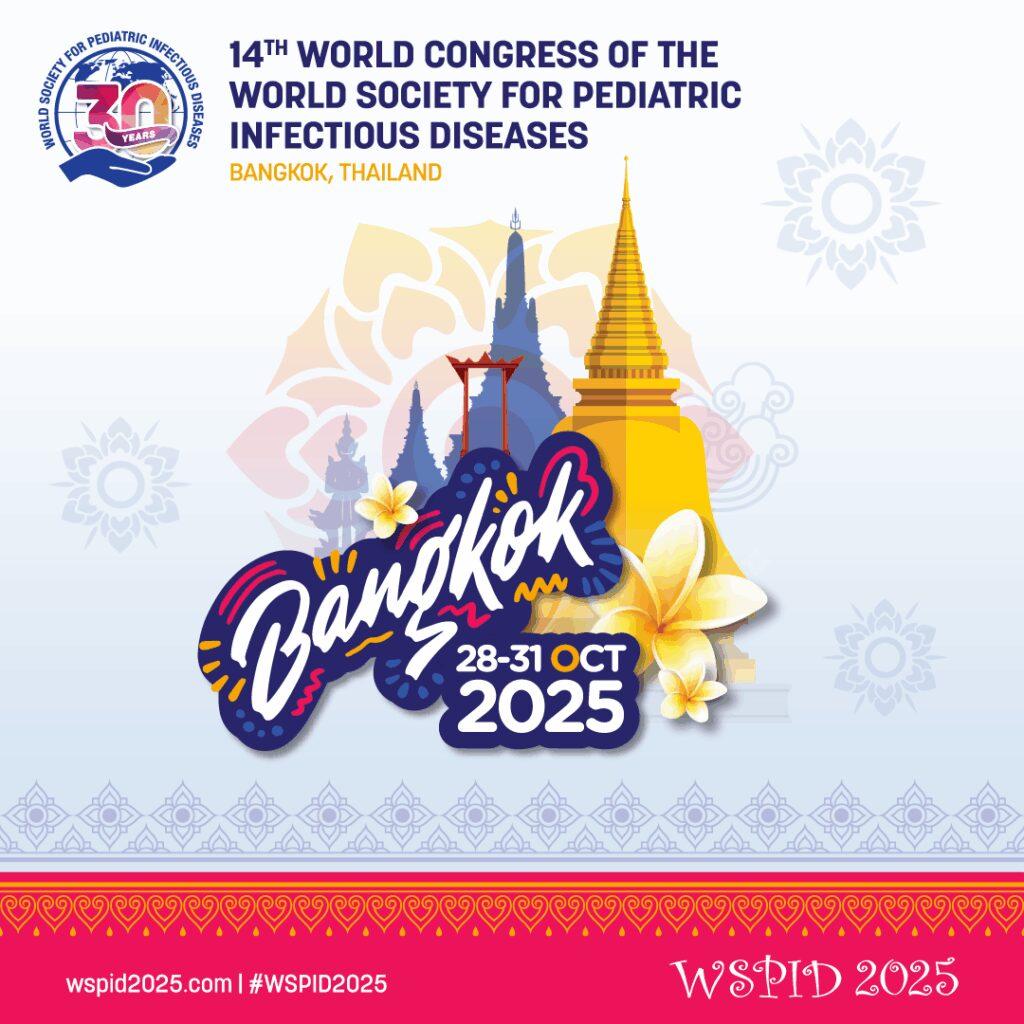
The Conversation Continues: WSPID 2025 Ends with a Call to Strengthen Global Research Systems Through Collaboration
The #WSPID2025 program just keeps on giving, wrapping up the congress in Bangkok, Thailand with an engaging final-day plenary: “Clinical Trials in LMICs: Hot Topics and Improving the Efficiency of Research Systems.”
Featuring an exceptional lineup of global experts, including our president Professor Asha Bowen and representatives from the World Health Organization (WHO), this session underscored the importance of stronger collaboration and more efficient research systems in low- and middle-income countries.
Importantly, the dialogue opened the door to a potential WHO–WSPID collaboration, reflecting WSPID’s commitment to advancing equitable, high-quality research across all regions.
👉 Read the key highlights below.
Fiona Russell opened the plenary session on “Clinical trials in lower middle-income countries: hot topics and improving the efficiency of research systems,” highlighting its role as a platform for presenting research relevant to LMICs. She introduced the WHO-led initiative to strengthen clinical trial ecosystems, referencing the World Health Assembly resolution and the pediatric-focused work led by Martina Penazzato. The aim is to address underrepresentation of children in trials, especially in LMICs, by identifying priority research questions and overcoming barriers such as ethical/regulatory constraints, funding limitations, and limited research capacity.
Martina Penazzato outlined the WHO’s global action plan, emphasizing the mismatch between disease burden and research location, with only 10% of trials including children and very few conducted in LMICs. She described the prioritization exercise using a modified CHNRI method with AI-assisted clustering of over 300+ submitted research ideas. Criteria included impact, equity, feasibility, scalability, and scientific value. The process involved global expert scoring and stakeholder consultation to identify top priorities, many of which focused on infectious diseases. She stressed the need for coordinated, transparent processes and sustainable infrastructure to generate high-quality evidence for policy-making.
Yasir Bin Nisar presented the results of the WHO prioritization exercise: infectious diseases dominated the top 20 research questions, reflecting their ongoing role as leading causes of under-five mortality. High-ranking questions scored strongly on scalability and impact, while lower-ranked ones were often seen as difficult to implement at scale. Stakeholder consultations highlighted the need for resource mobilization, capacity building (including AI and data-driven decision-making), and alignment of funding with national priorities. Funders were urged to coordinate better and support multi-country studies to avoid duplication.
Kulkanya Chokephaibulkit shared a practical framework for conducting efficient, rigorous trials in LMICs, using Thailand’s multicenter PCV 1+1 schedule trial as an example. She discussed challenges such as limited funding, uneven lab/data capacity, regulatory delays, workforce shortages, and community mistrust. Success factors included early stakeholder engagement, alignment with existing systems, local capacity building, leveraging public sector trust, and using a local CRO for cost-effective project management. The trial achieved rapid startup (four months), high retention, and timely enrollment by integrating with routine care. She advocated for regional trial networks, policy alignment, digital integration, and sustainable career paths for trial professionals, envisioning LMIC-led trials as the norm.
Asha Bowen discussed adding children to predominantly adult adaptive platform trials, focusing on the SNAP trial for Staphylococcus aureus bloodstream infection. She explained the adaptive platform design, which allows multiple parallel interventions and Bayesian statistical methods for efficiency. Pediatric inclusion required overcoming endpoint differences (lower mortality in children) and ensuring representation in all working groups. The trial now includes over 200 children, making it the largest pediatric S. aureus BSI trial to date. She highlighted consumer engagement, Aboriginal representation, and careful domain selection (excluding high-radiation PET CT for children). Lessons learned are being applied to the new STRAP trial for Group A Streptococcus, emphasizing innovation, collaboration, scalability, and ethical engagement.
Flor Munoz addressed improving inclusion of pregnant women in trials, noting their frequent exclusion despite high disease risk. She reviewed barriers: developer liability concerns, limited research capacity, lack of gestational dating tools, regulatory unfamiliarity, and cultural consent issues. COVID-19 underscored the consequences of exclusion, delaying access to interventions. She traced progress from NIH’s late-1990s inclusion mandates to recent global ethics guidance, Brighton Collaboration case definitions, and WHO initiatives. She advocated a paradigm shift from exclusion of pregnant women to inclusion unless justified otherwise, supported by preclinical data (DART studies) and early-phase safety/immunogenicity trials. Post-authorization real-world evidence, registries, and systematic reviews are critical for safety monitoring. She presented tools for causality assessment of adverse events following maternal immunization and stressed protecting mothers and infants through research, not from it.
The discussion covered bias in prioritization submissions (more from high-income countries), balancing mortality and morbidity outcomes, ethics of fetal rights in consent, and challenges in post-licensure signal detection (e.g., RSV prematurity). WHO representatives confirmed ongoing analyses to address bias and integrate disease-specific inclusion tools. The panel agreed on the need for continuous, efficient trials that influence policy and practice, with strong advocacy for including children and pregnant women, especially in LMIC contexts.